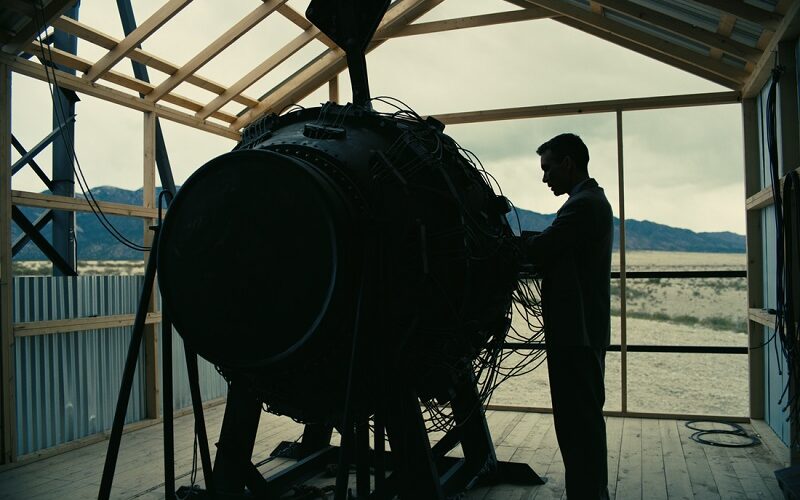Oppenheimer (Nolan, 2023)
I am not a formal member of the Church of Nolan, though I do think he is the most consistently ambitious commercial director working today. And I think that’s a good thing. It means we get lots of good movies with scope and ideas and experimentation and not just tentpole, franchise, cookie-cuts.
It also means that his movies sometimes arrive accompanied by Pentecostal-like choirs of critics crawling over one another to see who can be the most effusive in their praise. That can be grating, so when a Nolan film doesn’t live up to the hype (I’m looking at you, Tenet), the blowback can be similarity overblown.
My point of comparison here is probably Steven Spielberg around the time of Schindler’s List — Nolan is commercially successful, popular with the masses, and missing only the big prize for his mantle of awards. That being the case, each new film gets judged not so much on its own merits but too often on whether or not this one will be *the* one.
And it well could be. Oppenheimer boasts a fabulous script that manages to make complicated scientific, political, and psychological stories accessible to a mainstream audience. It has stellar performances from Cillian Murphy and Rober Downey, Jr., as well as multiple meaty supporting roles. Even though the plot is built around not one but two hearings, Nolan’s non-linear script keeps it from feeling like a talking-heads documentary.
If anything, that non-linear script is a stellar example of form mirroring content as much of the story is about how ideas, decisions, and actions look different at different points in time. Nolan gets cinematic help from Hoyte Van Hoytema, who is probably the best cinematographer not named Roger Deakins working today. Montage editing to convey a mood or idea (as opposed to what is literally happening in the room) is not exactly a new technical innovation, but it is used masterfully here to help keep a three-hour film from bogging down in dialogue.
If I have a nit to pick — and this should be no surprise to even Nolan’s fans — it’s in the area of sound design and mixing. The volume of music and sound effects is just on the wrong side of borderline assaultive. I have no doubt that some of this is deliberate, and it is appropriate to the subject matter both in creating anxiety and suspense. But, you know, long periods of painfully loud noise is one form of torture precisely because it can overload the recipient. I suppose one could defend it on the grounds that Oppenheimer is himself unraveling under stressful conditions, but it feels like a blunt instrument in the hands of an otherwise skillful artisan. It is also worth noting here that it can be difficult to assess to what extent sound is a theater problem as opposed to a movie problem. But given how sound mixing is a repeated topic in the reception of Nolan’s films, it is worth mentioning. And since Oppenheimer is a very good movie overall and the type of event film that many people will see regardless of reviews, it leads to my only serious recommendation, which is maybe to avoid IMAX or Dolby on first viewing.
One of the major thematic conflicts in the film is the tension between theory and experimentation. Like so many broad themes, this can be seen as metafictive — it is a similar tension felt by the artist/filmmaker. Knowing the formula for a good movie is something different from actually making a blockbuster or bomb. The moments during the countdown where the genius has spent billions of dollars and yet isn’t positive if the end result will work is also a rough parallel of movie-making.
Of course, the consequences of a movie succeeding or failing may not save the world or destroy it, but as Oppenheimer so deftly illustrates, even the power of atomic energy to save or ruin the world may be largely dependent on the narratives we build around and about it. So maybe the crafting of the narrative — the advancing of a theory about what history means — is as important a contribution to our social and political progress as the artifacts that the narratives are about.

